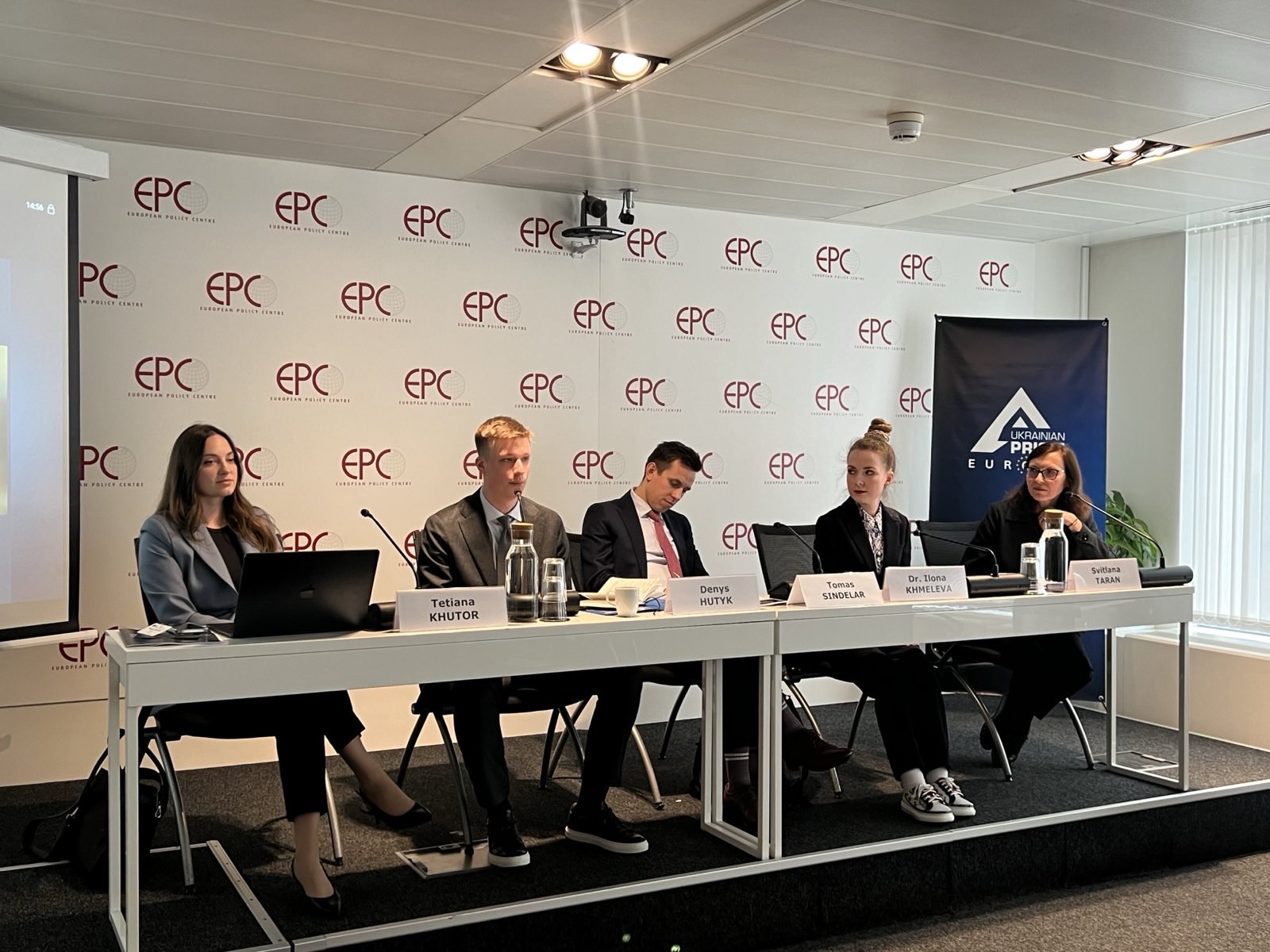EU tightens sanctions: Brussels discusses new economic measures against Russia
On May 26, the European Policy Center, with the support of the International Renaissance Foundation, hosted a policy dialogue in Brussels on “Ensuring EU Leadership in Sanctions Policy and Economic Security.” The event brought together representatives of EU institutions, governments, think tanks and civil society to jointly explore ways to strengthen Europe's sanctions policy and economic resilience amid Russia's ongoing war against Ukraine.
The event featured the presentation of a white paper entitled “The Future of European Leadership in Economic Containment of Aggression,” prepared by the National Sanctions Coalition under the coordination of the Economic Security Council of Ukraine. The document proposes several practical solutions to enhance the effectiveness of EU sanctions, including the establishment of a single sanctions authority, the introduction of a US-style sanctions list, stricter controls on the export of high-risk goods, and the implementation of secondary sanctions.
Participants in the discussion stressed the importance of a comprehensive approach to countering circumvention schemes, in particular by sanctioning not only entities but also related operators, including those outside the Russian Federation. Representatives of the EEAS, the US, and other partners emphasized that the EU has every opportunity to become a global leader in the sanctions coalition.
The discussion panel also featured Tetiana Khutor, Chairwoman of the Institute of Legislative Ideas, who presented Ukraine's experience of effective cooperation between the state and civil society in the field of sanctions policy.
In her speech, she focused on:
- the potential for enhanced cooperation between institutions and civil society to strengthen sanctions pressure and export controls;
- Practical tools for engaging non-governmental analytical initiatives, in particular the War & Sanctions platform, which is successfully operating in Ukraine;
- Opportunities for adapting the Ukrainian experience in EU countries.
Tetiana Khutor also presented the unique experience of the Institute of Legislative Ideas in the field of sanctions: participation in the development of national legislation, the creation of analytical tools, and ongoing advocacy for sanctions decisions in cooperation with international partners.
The event in Brussels once again demonstrated that strengthening the EU's sanctions policy is only possible with greater involvement of civil society, exchange of experience, and political will to respond to long-term threats to European security. A recording of the event can be viewed here.
The full text of the White Paper is available at the link.




